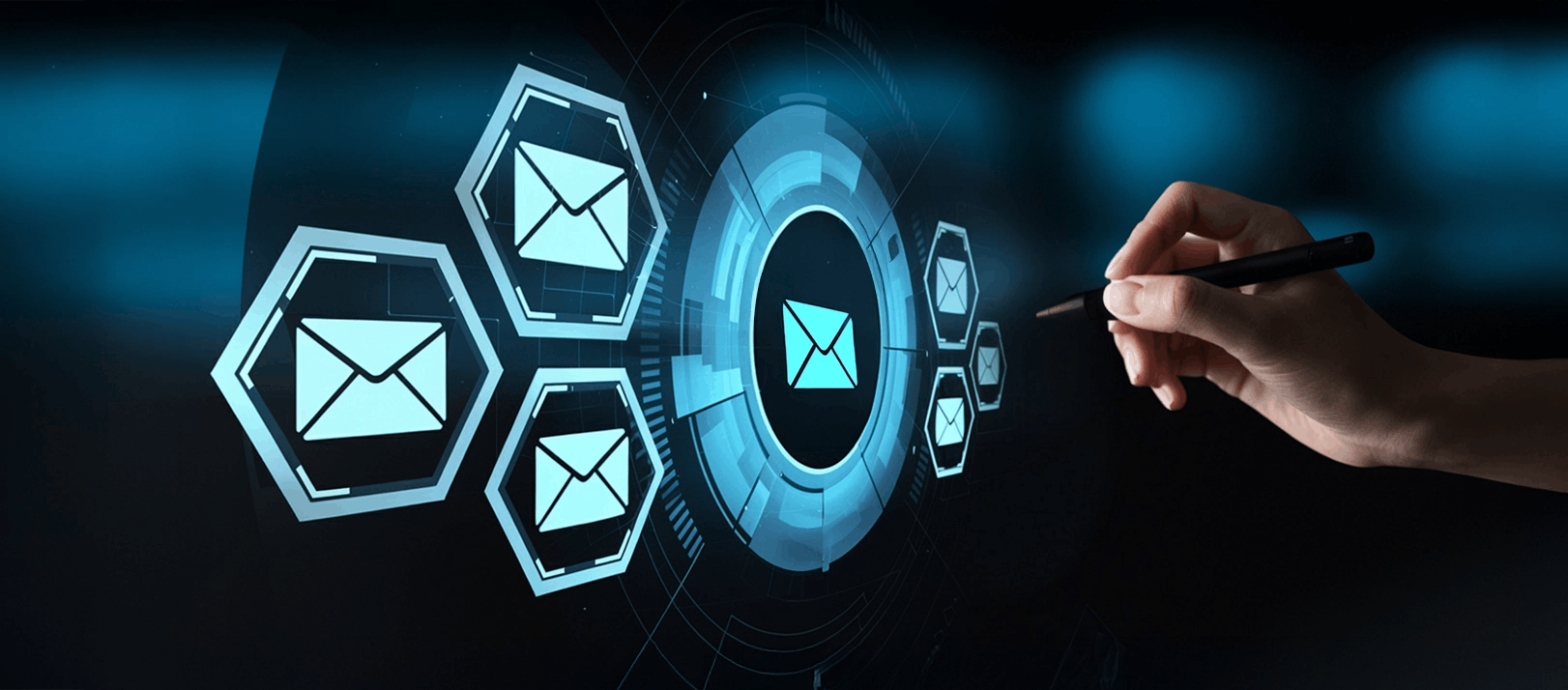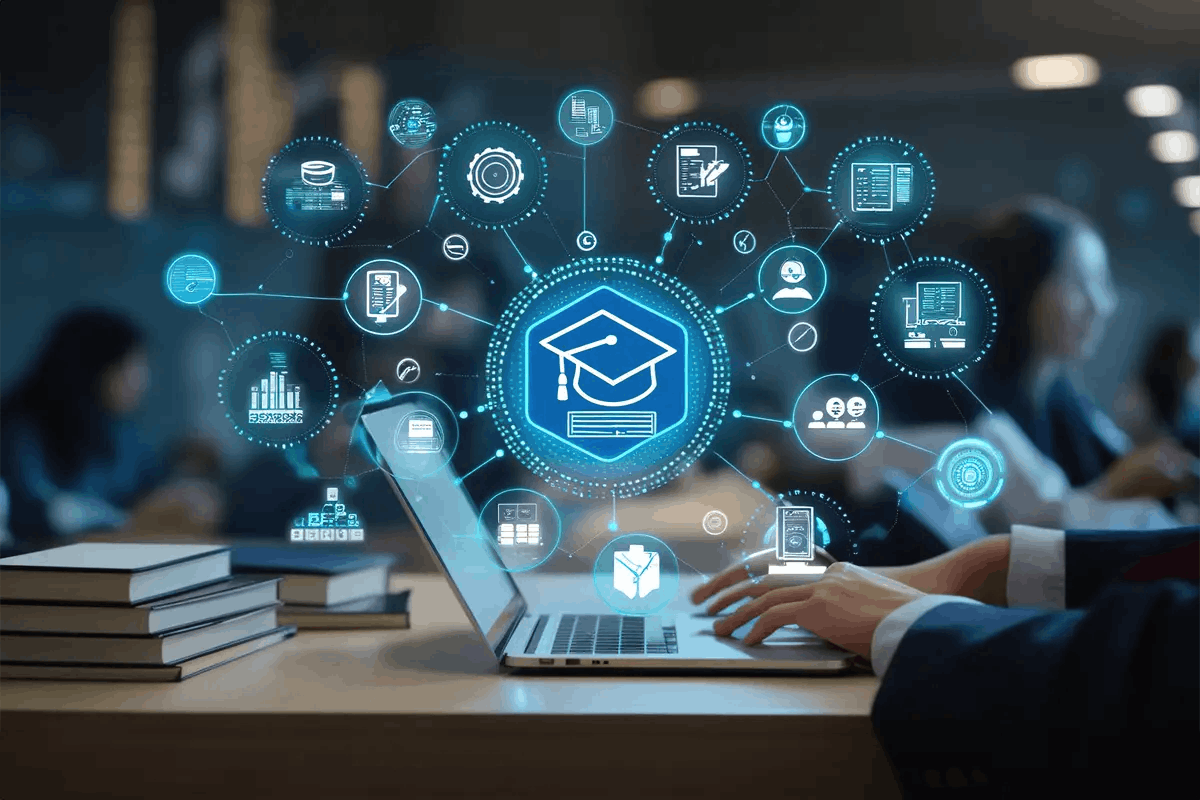
,
In today’s digital world, eLearning platforms, commonly known as Learning Management Systems (LMS), are vital tools in the modern education and training sectors. These software systems have completely changed how organizations and educational institutions deliver learning content, document training, and manage the learning process.
An LMS is a software application that enables educators to design and distribute course content, manage student registration, track progress, and assess learning outcomes. This streamlines educational development and makes acquiring knowledge much easier and more attractive for students.
A recent report showed that 77% of organizations and 63% of students are already utilizing LMS systems to manage learning effectively. This rapid adoption by businesses underscores the importance of exploring the various aspects of LMS, including their types, must-have features, and potential advantages.
What is a Learning Management System (LMS)?
A Learning Management System (LMS) is a software tool or web-based application used to automate different procedures involved in learning. The core function of an LMS is managing the distribution of educational materials, tracking student work, and facilitating the assessment process.
LMS platforms are increasingly popular across different sectors:
- Education: K-12, higher education, and vocational training.
- Corporate Training: Employee onboarding, upskilling, and professional development.
- Regulated Industries: Compliance training and certification management.

Key Features of an LMS
LMS platforms offer a range of features that support both students and educators:
- Course Creation Tools and Content Management Systems (CMS).
- Assessment Engines (quizzes, exams, assignments).
- Analytics Dashboards for tracking performance.
An LMS allows companies or institutions to offer a unified learning experience, deliver training in a shorter time, and guarantee that learners achieve the required educational milestones.
Elements of Learning Management Systems
LMSs are structured with many essential components, covering both technical functionality and educational theory. These elements are crucial for developing successful learning strategies in a digital environment.

- Content Management: Tools to easily upload, organize, and manage various formats of learning materials (SCORM, video, PDF, interactive modules).
- User Management: Features for registering users, assigning roles (admin, instructor, learner), and organizing them into groups.
- Assessment & Grading: Built-in engines for creating quizzes, tests, and assignments, plus automated grading and feedback tools.
- Reporting & Analytics: Dashboards to track learner progress, completion rates, test scores, and overall learning impact.
- Communication & Collaboration: Tools like forums, discussion boards, and live virtual classroom integration (e.g., Zoom/Teams).
- Personalization: The ability to create individual learning paths based on a learner's role, needs, or prior knowledge.
Types of (LMS)Learning Management Systems
Learning Management Systems are available in different types. Each being designed to fulfill the needs of different organizations or institutions and learning environments. Some of the major types of LMS are as follow:
Cloud-based LMS
It is a digital program that runs on a cloud and is hosted on a cloud. It can be accessed from any part of the world with a stable internet connection. Among organizations, the cloud-based LMS has the highest popularity of use. It is preferred over other forms owing to its technical support and constant availability of servers. Cloud-based LMS is an effective method of the possibility of learning materials as well as work productivity.
Self-Hosted LMS
It is a learning management system that is installed on a company or educational institution's own servers. Since they are hosted on their own server, they offer a full-scale administration system. This is advisable that the company have a completely secure and scalable server.
Corporate LMS
Corporate learning management systems are specifically beneficial for corporate employee development and training. One of the common features of corporate LMS platforms is Compliance Tracking which is the monitoring of the implementation of company laws. Most of the corporate LMS platforms have Performance Management systems. This helps corporate in goal setting, performance evaluation, and coaching/mentoring of employees.
Academic LMS
Academic LMS platforms are majorly used by educational institutions. They are very popular among schools, colleges, and other higher education institutions. They can help educational institutions manage courses, student enrollment, and analysis of students' performance.
Specialized LMS
These systems are focused on different sectors or skill acquisition, such as medical, financial, or factory operation coaching. They are also known to be equipped with various industry-centric functions and compliance modules.
Key Features of a Learning Management System
An effective LMS offers multiple functionalities that support the entire learning process. Below are some of the key features of an LMS mentioned:
Management of Content
The ability to create, organize, and manage courses is the central role of the LMS. It should have access to tools for uploading content, creating modules, creating assignments, and setting up assessments (if necessary). A comprehensive course management system guarantees that teachers and trainers can effortlessly come up with course materials that fit the desired learning objectives.
User Management
An LMS platform's user features should be built in such a way that it's easy to manage user roles, permissions and authentication. This aids in safeguarding sensitive data and making sure that individuals who see information appropriate for them can only access it. User management is a process that also allows tools for learners' involvement, the assessment of their progress, and the issuance of certificates.
Content Delivery
LMSs should support the smooth delivery of course materials in multiple formats such as text, video, and interactive media. In addition, they should also be able to keep track of the progress of learners, the level of their engagement, and the shares of course/courses that have been finished. Information of this kind is very helpful for learning the effectiveness of the training and making changes where they are needed.
Assessment Tools
LMS that aims to determine student progress cannot be fully productive without the use of, for example, quizzes, tests, and assignments, which are among the important assessment tools. The tools, in this context, should be able to align with the course learning objectives, enable quick student responses, and know whether what they have learned is correct or not. Besides, the functionality of the student assessment system and other tools is very important in the grading process.
Mobile Compatibility
The huge growth in mobile technology is behind the need to have mobile-compatible LMS software. The LMS software has to be adaptable to various mobile devices such as tablets and smartphones. Mobile-compatible platforms help to access content across the world using any device. This adaptability is a major factor in making the learning process more popular among students.
Integration Capabilities
An LMS should be able to integrate with other systems used by organizations or educational institutions. These might include HR systems, CRM platforms, and e-commerce solutions. Efficient data management and improved LMS functionality will be the result of the integration method.
Read more:
- AI in Grading: Revolutionizing Assessment Processes
- How AI is Revolutionising EdTech industry
- AI Grading Development Process and Considerations
- How AI in Education is Leading the EdTech Market
- AI-Based Custom LMS: The Smart Investment Your EdTech Business Needs
Benefits of Using an LMS
Learning Management Systems have been increasingly used in educational institutions and businesses. Let us now find out some of the benefits associated with LMS:
Better Employee Engagement
LMS with its personalized learning system helps to boost learners' engagement. Its structured and engaging learning experience improves learners' way of learning and evaluation. This can further improve the retention of the employees. LMS as an online tool improves learners' motivation and involvement significantly.
Increased Efficiency
LMS can make the whole learning process more efficient with its various features. It can reduce the time of learning and various costs associated with learning management. Several administrative functions like registration and monitoring can be automated. This allows educators more time for the preparation of better study materials.
Enhanced Learner Experience
A well-maintained LMS comes with a user-friendly interface. A well-designed UI ensures that learners enjoy the learning process. LMS also improves the accessibility of resources by making them available to the learners based on their needs irrespective of time and place. This results in an enhanced and successful learning environment.
Better Reporting
Learning Management Systems come with multiple reporting tools. These tools give a detailed analysis of the learner’s improvement and growth. Also, this helps to judge the efficacy of the training process. This reporting is critical to understand the limitations of the systems and the ways of betterment.
Savings of Cost
The deployment of an efficient LMS can cut costs across different fields. An LMS can reduce the expenses associated with physical educational material and physical travel of educators. It also reduces various costs associated with the paper-based learning process.
Build a Telegram bot like Kombat Hamster with user-friendly features and engaging design
Best Practices for Implementing an LMS
An LMS must be implemented correctly to achieve the best output. These are some best practices that should be followed:
Plan the Process
Start with an in-depth implementation strategy. A detailed plan should be drafted, including long-term objectives, a required timeline, and a detailed study plan. It is critical to have a well-defined target and a realistic deadline to ensure efficient deployment.
Involvement of Stakeholders
It is critical to involve all major stakeholders, educators, trainers, the IT team, and learners while implementing the LMS. They should initially use the system to explore any possible issues. Involving all stakeholders ensures the LMS is suitable for all kinds of users.
Exhaustive Training and Support
The implementation plan should cover exhaustive training for all users, especially administrators and instructors. Continuous support and allocation of resources are necessary for the effective deployment of the LMS.
Start Small, Then Expand
Start the deployment process with a small pilot group to thoroughly test the LMS in advance. This provides a clear picture of the system's performance and any flaws that may occur, allowing necessary corrections before implementing it across the board.
Continuous Monitoring
LMS performance should be continuously monitored to maintain the system. Having a structured mechanism to collect feedback is necessary for continuous improvement. Furthermore, continuously updating the LMS with relevant materials is the best way to maintain its relevance for the intended users.
Communication Related to Benefits
Ensure clear communication related to the benefits and advantages of the LMS to all users and stakeholders. A clear-cut idea about how the LMS will improve learning output will surely increase the adoption and engagement of the learners.
Conclusion
LMSs are essential software tools in today's learning space. They offer a range of features and benefits that can significantly improve the learning process, providing a productive learning environment whether you are an educational institution, a corporate entity, or a specialized training provider.
By understanding the various LMS types, the most important features to seek, and the advantages they bring, you can make the best selection for your organization. Putting an LMS into operation is a deliberate, well-thought-out plan, but with the right approach, you can create a powerful learning environment that your students will love, and your organization will flourish.




